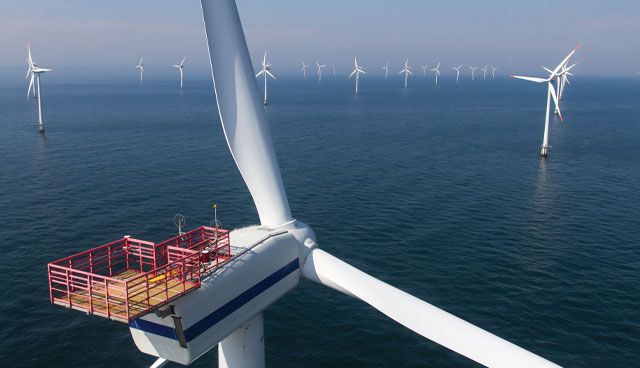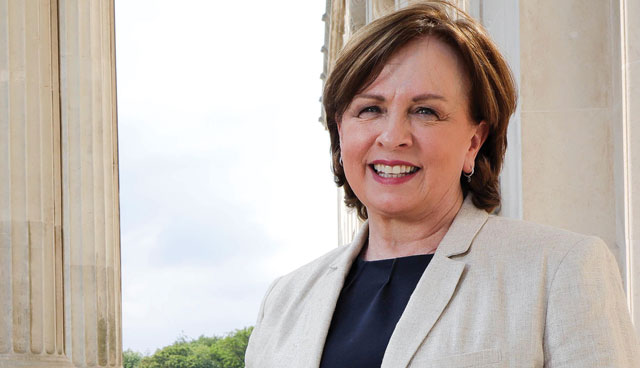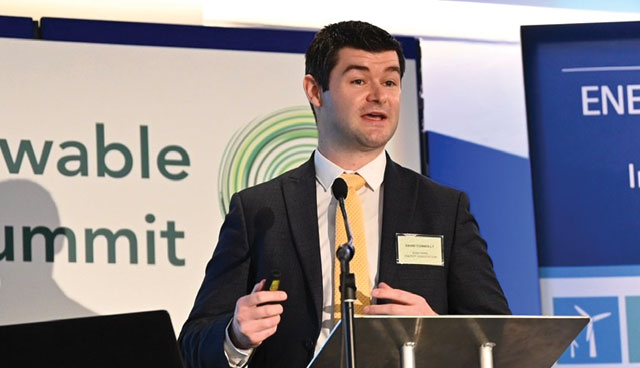
Offshore: Delivering a National Marine Planning Framework
8th December 2020
My vision for the renewable electricity sector
8th December 2020Where is the renewable energy NPHET?

If Ireland can step up when we are called upon to do so to deal with a dangerous pandemic, can we not find a way to do so when we confront the existential challenge of our time, asks David Connolly.
Over the last 10 months, and counting, we have seen a mobilisation of people at every level of Irish society that is utterly without precedent.
Schools and workplaces have shut down. We have put on our masks and kept our distance. We have kept apart from loved ones, supported frontline healthcare workers and lived quietly anxious lives as we worried about our friends, family and livelihoods.
No one would claim that the response from the Government has been perfect. Fair-minded people can disagree about the efficacy of one decision or the other, whether a certain change was made too late or too early.
But through it all there has been a sense of a collective endeavour, of individuals, communities and a society uniting behind a shared goal to flatten the curve, to stay safe.
As I write, there is growing optimism about vaccines that could be rolled out as early as next year and, as tragic and horrendous as the Covid-19 crisis has been, it has also given me a reason for optimism.
For if Ireland can step up when we are called upon to do so to deal with a dangerous pandemic, can we not find a way to do so when we confront the existential challenge of our time,
the need to decarbonise our energy system, our economy and, ultimately, our way of life?
Programme for Government
The Programme for Government says that “The transformation to a low carbon, digital economy requires the concerted mobilisation of every element of Irish society”.
It goes on to highlight the importance of political leadership, sustained engagement with citizens, support for those at risk from the move to a low-carbon economy, as well as protection for the families and communities least equipped for the coming transformation.
This level of mobilisation will not happen by itself. It will require a public information campaign of a scale, an intensity and a duration that will completely overshadow the response to the Covid crisis. It cannot be the responsibility of any one government, let alone any single department.
In the same way as the National Public Health Emergency Team pooled information, identified problems and proposed solutions to the pandemic, we need something similar to provide the expert direction and leadership required to drive the transformation of Ireland’s energy system.
Since the start of the Covid-19 crisis the NPHET has met at least weekly. The Cabinet Committee on Covid-19 also meets regularly.
Yet since it was established in July 2019 the Climate Action Delivery Board, responsible for delivering the Climate Action Plan, has met three times as of October of this year.
Some of this can be explained by the Covid crisis itself. It has, rightly, taken precedence but as, hopefully, it begins to recede we need to see whether the urgency and shared sense of determination can be translated to the bigger fight.
In October 2018 the UN Intergovernmental Panel on Climate Change (IPCC) told us we had 12 years to keep global heating to a maximum of 1.5°C. Beyond that, the lives of hundreds of millions of people will be vulnerable to drought, floods and extreme heat. Many will be forced to leave their homes as refugees.
Crisis worsening
Two years have passed since then and the world’s climate and biodiversity crisis has only worsened while in Ireland more extreme weather events are becoming increasingly common.
Cabinet committees and climate action delivery boards are simply not enough. We must find a new way to inspire and lead a generation of Irish people to embrace the fight against climate change as something that is a personal fight for each of us, but also part of a shared collective responsibility.
We need to empower people, as individuals and families, to act, to make their own contribution whether that is by reducing their energy use, switching to zero or low-carbon heating or transport options or even developing and producing their own renewable energy.
But we also need to mobilise their support for the challenge of building the infrastructure we will need to decarbonise our energy supply and support the electrification of heat and transport.
Over the last year IWEA has developed what we refer to as the 70by30 Implementation Plan – a set of four reports that set out in exact detail how we can build the onshore and offshore wind farms we will need by 2030, what needs to be done to strengthen the grid to accommodate this renewable energy and how it can be done in the most cost-effective way possible.
In the next 10 years our members need to build twice as much onshore renewable capacity as they did in the preceding 20. And, while doing that, many of them are also going to be leading the development of an entirely new Irish industry in the form of offshore wind.
We will be working alongside our colleagues in the solar and battery energy storage industries who have their own significant parts to play.
“This level of mobilisation will…require a public information campaign of a scale, an intensity and a duration that will completely overshadow the response to the Covid crisis.”
And that is just electricity, the ‘easy one’. We need to decarbonise heat by retrofitting hundreds of thousands of buildings, installing heat pumps in rural homes and rolling out district heating to our cities. We must decarbonise transport by encouraging people to use public transport, to walk or cycle instead or, if they must use vehicles, to use ones powered by electricity or hydrogen.
Over the next 10 years we need not only this Government but the whole political system, from TDs and senators in Leinster House to officials in Government Buildings, to be brought together behind a single vision for a zero-carbon Ireland.
The business as usual approach to policy development in Ireland is a recipe for stagnation, disappointment and failure.
Need to come together
We need to come together now to identify the barriers to the development of renewable energy, to empowering the community energy sector, to finding new ways to heat our homes and to get to work, and we need to eliminate those barriers quickly and efficiently.
We know we can do this. We have no shortage of expertise in Ireland. We have a thriving renewable energy industry, world leaders in renewable integration in EirGrid and ESB Networks, extensive academic knowledge and expert advice in organisations like the SEAI, EPA and MaREI.
Throughout government we have dedicated and energetic civil servants who want to resolve these issues and in every political party in Leinster House there are those who are prepared to champion climate action.
What is missing is a vehicle to bring them together, to harness the energy and the experience, to drive the changes and the reforms, to bring the same level of urgency to reducing our carbon emissions as we did to flattening the curve.
Without it, I fear we will spend the next 10 years simply stumbling along, missing deadlines and missing targets, as the crisis gets worse and worse, as climate change affects more and more lives, here and abroad.
But with the right people in the room to work together and to bring every citizen of this country along the journey of understanding what it is we must do, what we will do, I have no shortage of optimism that we can, and will, rise to the challenge.
Dr David Connolly is CEO of the Irish Wind Energy Association.
T: +353 45 899341
E: office@iwea.com
W: www.iwea.com

